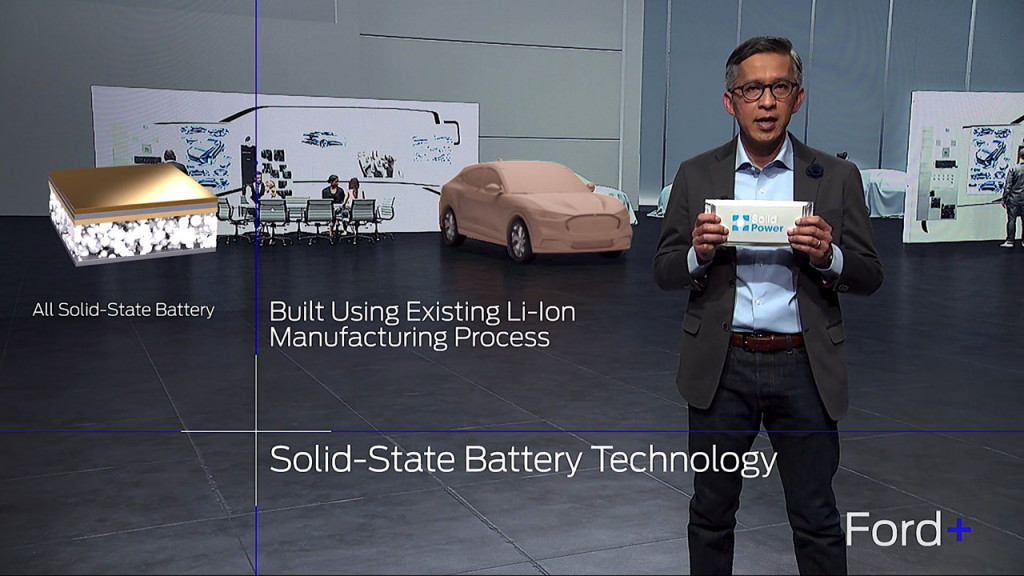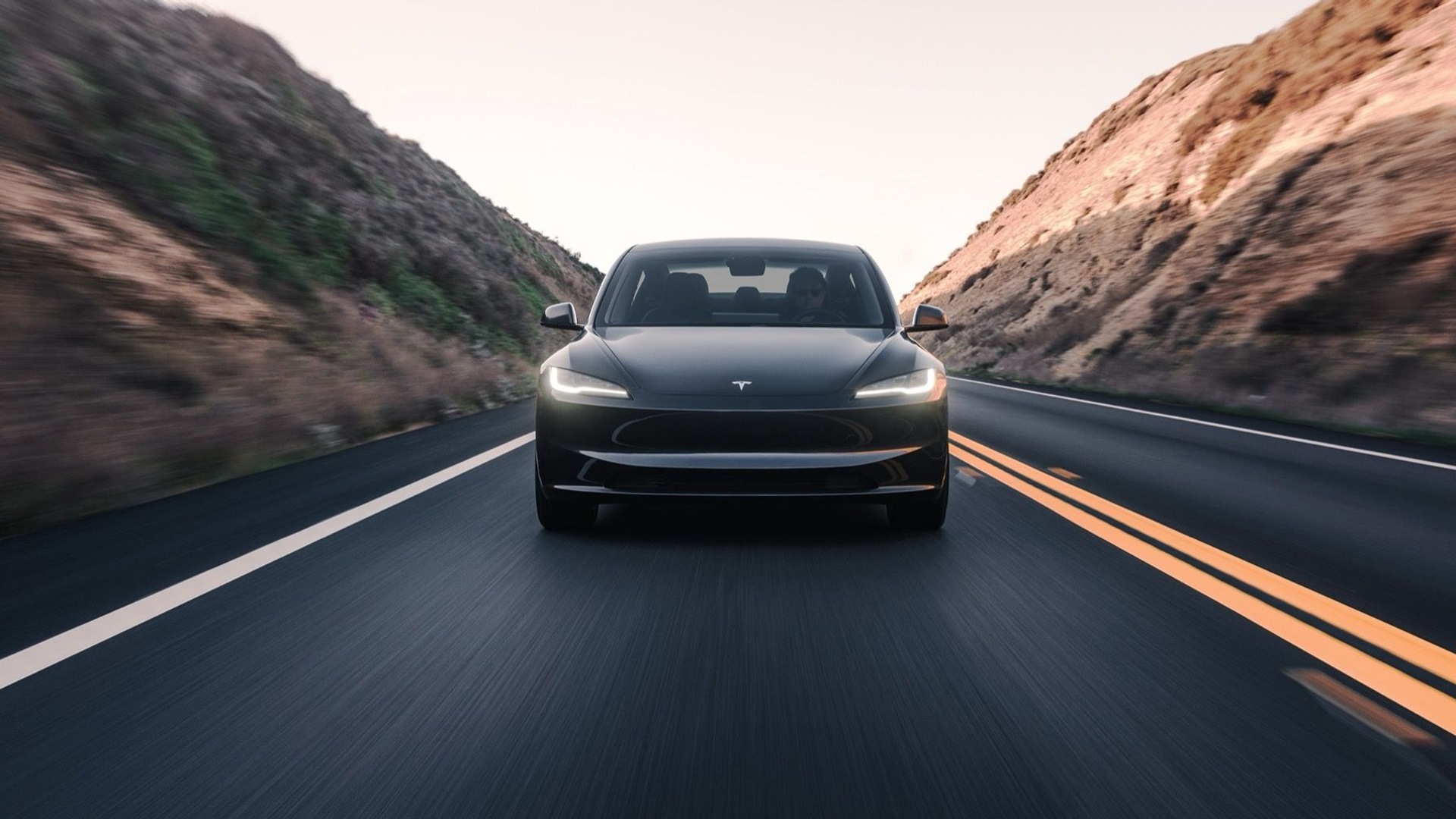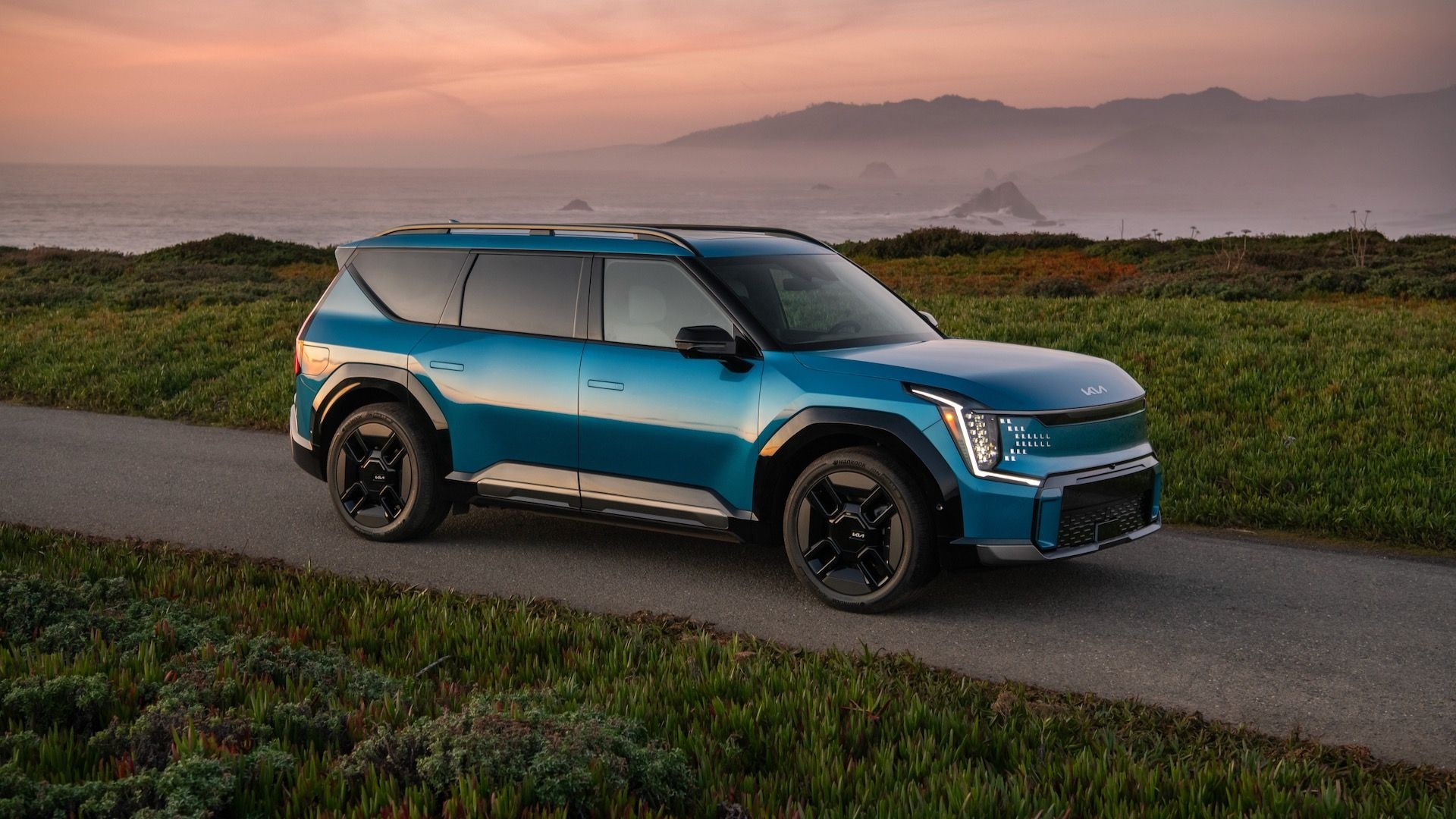Colorado-based Solid Power, the solid-state battery firm backed by Ford and BMW, claims that third-party safety tests show its battery tech to be safer than current lithium-ion chemistry.
The tests, with results released Wednesday, aimed simulate abuse and damage to its prototype solid-state battery cells. Those cells use a sulfide-based solid electrolyte in place of the liquid or gel used in conventional lithium-ion cells.
When fully-charged test cells were punctured by a conductive nail, the only change was a slight increase in temperature, Soild Power said in a press release. The nail penetration test produced no flames or venting of material from the cells, the company claims.
In other tests, cells were overcharged to 200%, and were also caused to short circuit, again with no serious issues, according to Solid Power.

Ford's Hau Thai-Tang, with Solid Power cell
Solid Power claims its cells can achieve a "stack-level specific energy" of 350 Wh/kg and 750 cycles with 80% capacity retention. It also claims to have achieved a cell lifespan of 1,000 cycles with greater than 80% capacity retention. With small pouch cells so far, the next step will be to scale up to the larger format pouch cells that some automakers are shifting to.
Ford and BMW have backed Solid Power and upped the investment last May. With that announcement, they said Solid Power would provide cells to both automakers for testing in 2022.
BMW has announced that it will have a prototype solid-state battery by 2025, with a production-ready version by 2030. Ford’s partnership with battery supplier SK Innovation is set up with the flexibility for future production of solid-state cells while preserving about 70% of the equipment used for current cell production.
Chinese automaker BYD has used a similar nail test to show the stability and safety of its Blade battery pack, which uses advanced LFP cells.












